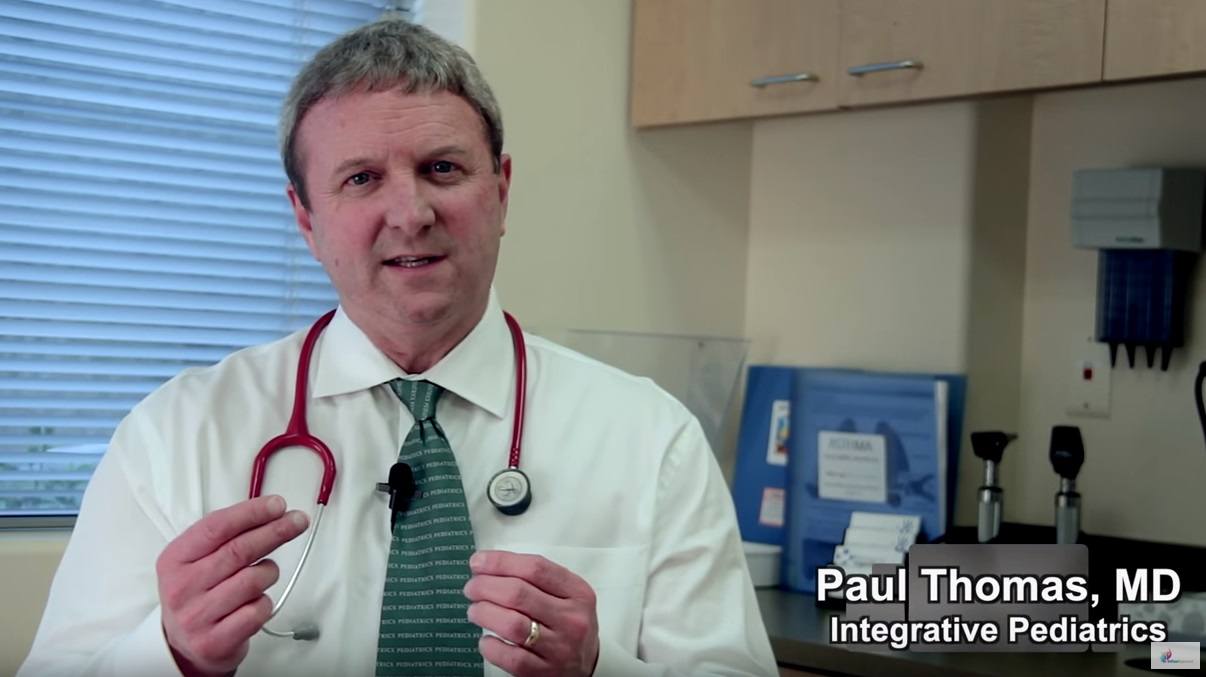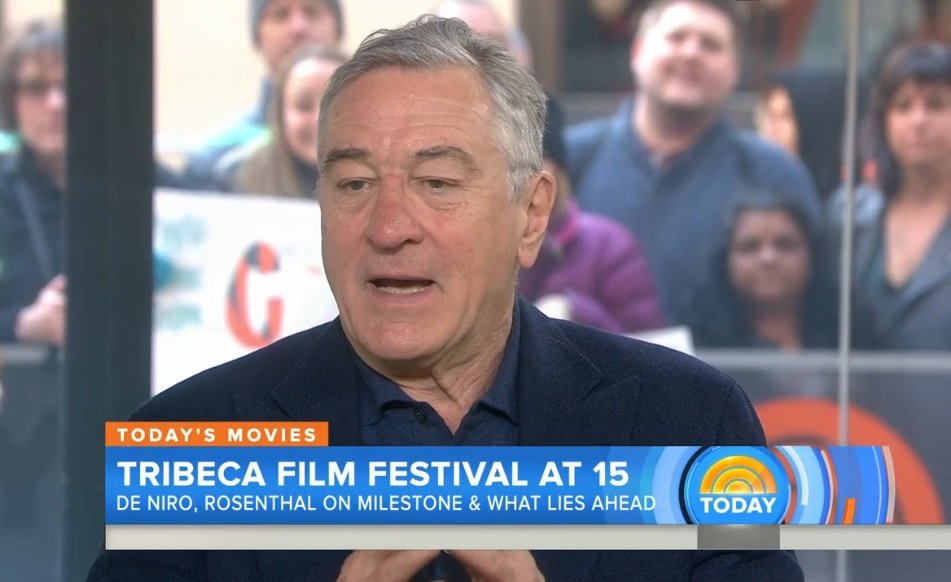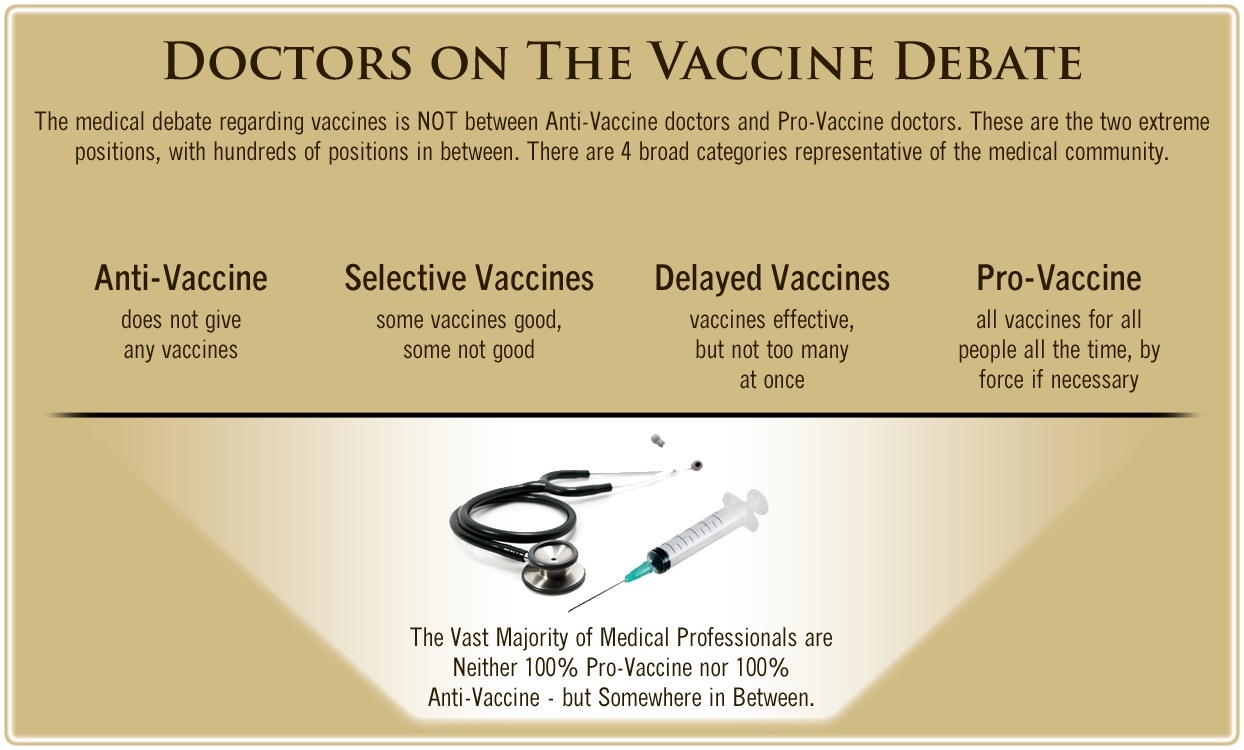
Let’s Find Out The Truth
by Paul Thomas, M.D. and Jennifer Margulis, Ph.D.
Health Impact News
“As a parent with a child who has autism, I’m concerned,” Robert De Niro said on the Today Show on April 13. “I want to know the truth. I’m not anti-vaccine. I want safe vaccines.”
De Niro got visibly upset as he spoke. Upset about the way the mainstream has shut down the conversation about vaccines and autism. Upset that he had to make the quick decision—which he seemed to say he now regrets—to pull the documentary Vaxxed from this year’s Tribeca Film Festival. And upset about his now 18-year-old son who has autism.

Image from The Today Show.
“The vaccines are dangerous to certain people who are more susceptible, and nobody seems to want to address that. Or they say they’ve addressed it and it’s a closed issue,” De Niro said. “There’s more to this than meets the eye, believe me. There is something there that people aren’t addressing.”
As a Dartmouth-trained pediatrician with over 11,000 children in my practice in Portland, Oregon, and a Cornell-educated science writer and Fulbright scholar who has been researching children’s health for over ten years, we agree with Robert De Niro: the question of whether vaccines are a contributing factor to the autism epidemic is anything but closed.
But what we know from our combined research and clinical experience is that there are still more unknowns than knowns in the debate about vaccines and autism.
We know something happens at the 12- or 15-month doctor visit to some susceptible children but we don’t know what it is and we don’t know why.
A lot of vaccines are given at those well baby visits. Most American babies receive the Hib, pneumococcal, chickenpox, measles, mumps, and rubella vaccine (MMR), and hepatitis A vaccines. They may also receive hepatitis B and polio (if they haven’t had the third doses yet), as well as a fourth dose of the DTaP (diphtheria, tetanus, acellular pertussis) at 15 months and at least one flu shot. It’s also very likely and extremely unfortunate that your doctor will suggest prophylactic Tylenol for your baby, either before or just after vaccination.
Questions that Scientists Agree Need to be Asked in the Vaccine Debate
Now that De Niro’s testimony about his son on the Today Show is literally being talked about around the world, what are the questions we need to ask?
1) Is it the MMR vaccine that is problematic or is it the MMR vaccine in combination with other vaccines?
2) Are there other vaccine ingredients that are just too toxic for a baby’s body to handle cumulatively, especially the cumulative amounts of aluminum that are in the vaccines?
3) Could it be the acetaminophen (the main ingredient in Tylenol) that is causing the biggest assault to the brain by depleting the body of glutathione?
4) Is it the cumulative toxic exposure and immune disruption (from things like antibiotics and vitamin D deficiency) that is causing children to slip into autism after the 12-month doctor’s visit?
5) Could early or prolonged exposure to ultrasound, which this study found to cause irregular migration of developing fetal brain cells in mice, be playing a causative role?
6) Or is it a combination of all of these issues, perhaps especially the toxic amounts of aluminum, combined with acetaminophen, which disrupts the ability to get rid of toxins, compounded by the three live virus vaccine (MMR) given to small children already burdened with toxins from pesticides, herbicides, fluoride, antibiotics, and an aggressive infant vaccine schedule, that is damaging some babies’ brains?
The short answer is that we aren’t sure yet.
It is tempting to point fingers, blame vaccines, and be outraged by the way the Centers for Disease Control and Prevention have actively closed the door on what, given the rising numbers of children with autism, should never have been a closed issue. It is becoming increasingly clear that the science on the possible link between vaccines and autism has not been done accurately or responsibly, as this senior scientist at the CDC admits. That’s what the movie Vaxxed is about—how the government deliberately and knowingly destroyed data showing a connection between the timing of the MMR vaccine and autism risk in African-American boys. Once we start asking the right questions and stop throwing out the data that does not conform to our pre-existing ideas, we can start getting real answers.
What Do We Already Know About Vaccine Safety?
In the meantime, what do we know for sure about vaccines?
1) It’s always safest to use the precautionary principle. Do not assume an intervention is safe unless it has been proven to be so. Your doctor saying, “It’s safe, don’t worry,” should not reassure you. Doctors often make the mistake of thinking that because they have always done something a certain way, in spite of bad outcomes, that is the way it should continue to be done. Remember that pediatricians also told parents that tetracycline, a broad-spectrum antibiotic, was safe. We now know it can get deposited into a child’s growing bones and cause permanent teeth discoloration and we no longer recommend it for children under eight. Our autism rates are now as high as 1 in 45. Something we are doing is not safe. The absence of data does not mean an intervention is safe.
2) Never use pediatric Tylenol. Acetaminophen must be avoided during pregnancy and throughout infancy. A study of over 64,000 mothers has shown that women who take acetaminophen during pregnancy are at significantly higher risk of having offspring with severe attention disorders. Another study recently published in the journal Social Cognitive and Affective Neuroscience shows that acetaminophen causes cognitive dysfunction in adults. Given the cumulative evidence against acetaminophen, we believe the U.S. Food and Drug Administration should have already banned it for use in children.
3) The MMR seems to be a particularly problematic vaccine for some children. If you have a family history of autoimmune disorders or vaccine injury, the evidence we have so far suggests that it will be safer to delay this vaccine until age three. We are not saying we know definitely that it is or it isn’t a causal factor in autism. A lot of people believe it is and thousands of parents have reported seeing their children becoming autistic after the MMR vaccine. But the jury is still out. At the same time, the evidence suggests avoiding MMR until a child’s brain is more developed.
4) Multi-dose flu shots contain thimerosal, a mercury-based preservative. In that same Today Show interview, Robert De Niro urged people to see Eric Gladen’s film, Trace Amounts, a documentary on mercury and its role in the autism epidemic. Note that the MMR vaccine has never contained thimerosal. While vaccine manufacturers voluntarily began phasing mercury out of childhood vaccines starting in the late 1999s, we are still giving mercury-containing vaccines to pregnant women and children. Our colleague, Cindy Schneider, M.D., has an excellent explanation of why this is a mistake. New research shows that given multiple times the flu shot becomes ineffective. If you feel strongly about giving your baby the flu shot, insist on a mercury-free single-dose vaccine.
5) You must keep meticulous track of every vaccine your child has been given. This is very important. Insist on being given the vials of the vaccines, and make sure you write down the lot numbers. Don’t expect your doctor to keep track for you. Even the safest most efficacious vaccines can fail or be contaminated. Your pediatrician’s office may be surprised when you ask for the vials, but your question shows them that you are paying close attention and forces them to pay attention too. With the vials in hand, you have indisputable proof of vaccination, in case a doctor later tells you to give your child another, “just to be safe.” And in the event that your child experiences a severe vaccine side effect, you know exactly what vaccines were given when.
Pro Vaccine Safety does not Equal “Anti-vaccine”
Insisting on vaccine safety is not controversial. Asking questions about vaccine safety is not being anti-vaccine. While pharmaceutical companies, mainstream researchers, and the media polarize the debate, thinking parents know better.
This is not an either/or, all or nothing.
As a pediatrician with a thriving practice, Dr. Paul gives vaccines in his office every day. As a science-minded researcher and mother of four, Jennifer chose to vaccinate her children. We are not against vaccines. We are simply in favor of safe vaccination.
We are facing an autism crisis of epic proportions. If anything about vaccines is implicated in the autism epidemic, we need to adjust the childhood vaccine schedule so we can keep our children protected from infectious diseases without increasing their risk for brain or immunological dysfunction. We stand with Robert De Niro. It’s time to find out the truth.
————
Paul Thomas, M.D., and Jennifer Margulis, Ph.D., are co-authors of the forthcoming book: The Vaccine-Friendly Plan: Dr. Paul’s Safe and Effective Approach to Immunity and Health—From Pregnancy Through Your Child’s Teen Years (Ballantine, August, 2016). Join the 124,000.
Dr. Paul Thomas, M.D. was born in Portland, Oregon, and grew up in Southern Africa. He has a Masters degree in biology, an M.D. from Dartmouth Medical School, and completed his pediatric residency at the University of California, San Diego. He is a board-certified fellow of the American Academy of Pediatrics, and also carries board certifications in Addiction Medicine and Integrative Holistic Medicine. He started the Pediatric After-hours Clinic (now Pediatric E.R.) at Emanuel Children’s Hospital, where he also taught medical students and residents from 1988-1993.
Jennifer Margulis, Ph.D., former Senior Fellow at the Schuster Institute for Investigative Journalism at Brandeis University, is an award-winning travel, culture, and parenting writer. Her writing has appeared in many of the nation’s most respected and credible publications, including the New York Times, the Washington Post, and on the cover of Smithsonian Magazine. Jennifer Margulis has appeared live on prime-time TV in Paris, France (she is fluent in French) to talk about child slavery in Pakistan and was prominently featured in a PBS Frontline TV documentary, “The Vaccine War” (April 2010).
Comment on this article at HealthImpactNews.com
Medical Doctors Opposed to Forced Vaccinations – Should Their Views be Silenced?
One of the biggest myths being propagated in the compliant mainstream media today is that doctors are either pro-vaccine or anti-vaccine, and that the anti-vaccine doctors are all “quacks.”
However, nothing could be further from the truth in the vaccine debate. Doctors are not unified at all on their positions regarding “the science” of vaccines, nor are they unified in the position of removing informed consent to a medical procedure like vaccines.
The two most extreme positions are those doctors who are 100% against vaccines and do not administer them at all, and those doctors that believe that ALL vaccines are safe and effective for ALL people, ALL the time, by force if necessary.
Very few doctors fall into either of these two extremist positions, and yet it is the extreme pro-vaccine position that is presented by the U.S. Government and mainstream media as being the dominant position of the medical field.
In between these two extreme views, however, is where the vast majority of doctors practicing today would probably categorize their position. Many doctors who consider themselves “pro-vaccine,” for example, do not believe that every single vaccine is appropriate for every single individual.
Many doctors recommend a “delayed” vaccine schedule for some patients, and not always the recommended one-size-fits-all CDC childhood schedule. Other doctors choose to recommend vaccines based on the actual science and merit of each vaccine, recommending some, while determining that others are not worth the risk for children, such as the suspect seasonal flu shot.
These doctors who do not hold extreme positions would be opposed to government-mandated vaccinations and the removal of all parental exemptions.
In this article, I am going to summarize the many doctors today who do not take the most extremist pro-vaccine position, which is probably not held by very many doctors at all, in spite of what the pharmaceutical industry, the federal government, and the mainstream media would like the public to believe.




